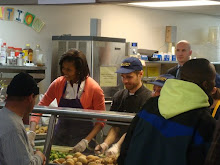Eyo festival: Between scorn and tolerance
Many waters, so goes the saying, have traversed the underbelly of the bridge. Since the famed contact of the African people with the seemingly superior white people, things for the former have taken a sorry turn in many respects and a good dimension in a few others. For instance, when the white colonial masters forayed into the continent with their Christian mission in tow, they expressed the most virulent form of intolerance against the religious and cultural practices of the people, joyously classifying them as demonic. Femi Ojo-Ade, a scholar of great renown, elucidates this in his eye-opening essay titled, The Blackman’s Burden: Christianity in Black African Fiction (2001). According to him, ‘the white man came to Africa with his culture, his civilisation, his complexes. He imposed his way of life, made converts, sometimes easily, at other times with force. The same basic notions pervaded the overall effort: Black was not beautiful, but beastly. Black, a colour, a culture … must be Christianised because, in the eyes of the master, Blacks were heathens, savages, Satan’s children, inhabitants of hell.’
Reasoning in the same manner as Femi, the Kenyan-born novelist, Ngugi wa Thiong’o posits that the Christian mission is a destroyer of African culture. He says, ‘The European Missionary had attacked the primitive rites of our people, had condemned our beautiful African dances, the images of our gods, recoiling from their suggestion of satanic sensuality.’ The Missionary indeed got away with this. They swelled their rank with the natives, turning them, in their reckoning, from darkness into light. In no time, those who got converted repudiated their culture and held on, even if gamely, to the Whiteman’s culture, Christianity.
Today, the story remains the same. With the increase in the number of African Christians comes the serial committal of whatever is left of African cultural heritage into the possessive bowel of oblivion. The notion that cultural festivals are laced with demonic contents as expressed by the over zealous white missionaries in search of black converts and cheap resources is now well laden in the minds of many modern day adherents of ‘testamentary Godism’ (apologies to Kongi).
About two days to the Eyo festivals which was held in Lagos late last month, some Christian faithful started canvassing for what they called ‘prayers to neutralise the demonic effects of the Eyo festival.’ Text messages were sent to that effects and a number of prayer meetings conducted. For them, the festival goes beyond a cultural thing. They reason that its observance is capable of instigating many problems.
In the opinion of Mrs. Esther Adeyinka, a member of a growing Pentecostal church, the Eyo festival, like others, is an ungodly thing. ‘Those who still do the Eyo thing are in darkness. They need deliverance. That is the work of the devil. Those who are truly saved need to wage spiritual war against the evil spirit behind it. It should not be tolerated,’ the visibly charged prayer leader maintained. Mr. Daniel Adenekan goose-stepped behind Mrs. Adeyinka, pointing out that if God should open the spiritual eyes of the Eyo followers, they would be surprised to see how Satan and his people are in charge of what ‘they ignorantly classified as culture.’ He said that FESTAC ‘77 was all that the people need to know that traditional festivals are avenues through which ‘the host of darkness manipulates the destiny and lives of people and countries. Not done, he added, glumly, that the socio-economic problems of Nigeria could not be divorced from ‘the infiltration of demons from other lands during the 1977 cultural gathering.’ On that score, he advocated that Christians should always rise (in prayers) against such celebrations.
Similarly, a man who identified himself as Pastor Sogo told our correspondent that there is nothing wrong with Christians warring against the powers of darkness that are behind the Eyo festival, or others like it; ‘it behoves Christians to speak against it and distance themselves from it,’ adding that ‘anybody who says he is a Christian and participates therein is not genuine.’ In the same vein, Mercy, a student of the University of Lagos, views cultural shindig, especially the Eyo, as ‘a sheer waste of time!’ Asked if there was any demonic trapping to the festival, she chuckled and said, ’those who are deeply into it know better. But I don’t think they will admit to this openly. During our morning devotion today, my daddy led us to pray against whatever evil power that might accompany the Eyo masquerades.’
This kind of spiritual combat, which some say is a tacit way of expressing ignorance and intolerance, was played out sometime in April 2008, at Obafemi Awolowo University (OAU), where the Ife International Festival of Arts and Culture was held. Not a few Christian students saw the presence of masquerades as a means of inviting ‘demons’ into the campus, to wit, to demonically militarise the campus. Pronto, they gave themselves over to spiritual pyromaniac orgies as a way of weakening the powers of the said ‘demons’ throughout the three days of the cultural fiesta.
Flipside, those who see nothing untoward in the Eyo festival are quick to point out that those praying against cultural festivals waste their time because the demon angle attributed to them is the figment of their (the antagonists’) fevered imagination. Observance of cultural festivals, they argue, helps in preventing ‘our culture from going into extinction.’
Emeka Nwabueze, a non-academic staff member of a private university, said, ‘those who pray or speak against anything culture are only telling us that the overarching influence of colonialism is still at work in them. In fact, the history of Christianity itself is one of war and blood. There has always been a conscious attempt to demonise any group of people who does not go the way of the Christian tradition. I am not surprised when some Christians say the Eyo festival is demonic. It is intolerance at work. Fatai, a molue driver, added histrionics to his reply. He sang a Yoruba song which, loosely interpreted, means that faith does not discourage us from observing cultural rites. With a brightened face, he said, ‘I don’t think there is anything wrong with the Eyo festival. It is culture. Nobody talks about demons when the white people are doing theirs.’ His advice is that ‘Christians should learn to tolerate what is not in their tradition. It is the way to live happily.’
Fatai’s admonition tallies with the position of Prof. Wole Soyinka in his address at the opening ceremony of the festival held at OAU. In the paper titled, Culture Subversion in the Name of Name-Dropping, the ogun devotee deadpanned thus: ‘Be as born again as you please …, but in heaven’s name, leave severely alone what you do not understand, what you do not cherish …’
Sunday, May 10, 2009
Subscribe to:
Post Comments (Atom)






No comments:
Post a Comment
default HTML tags